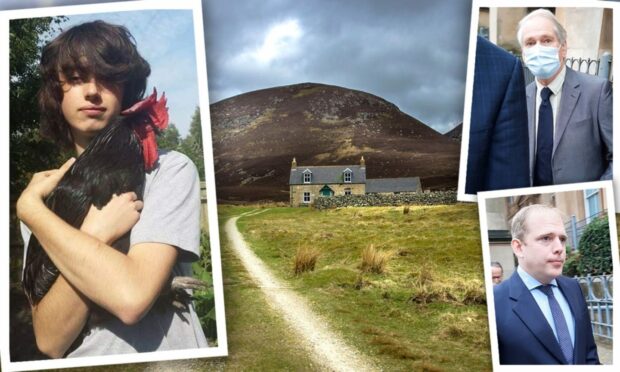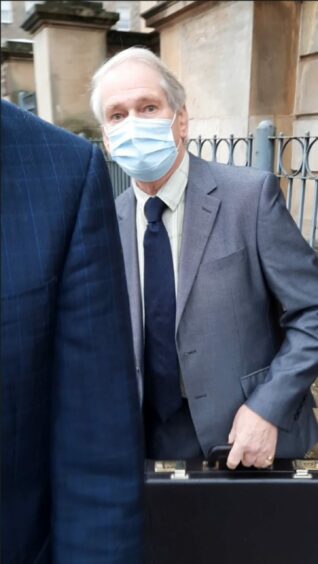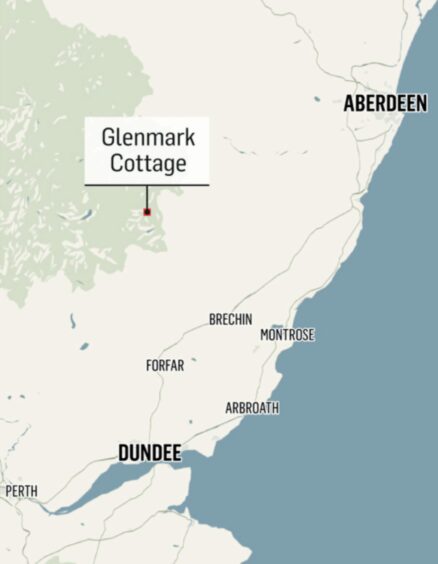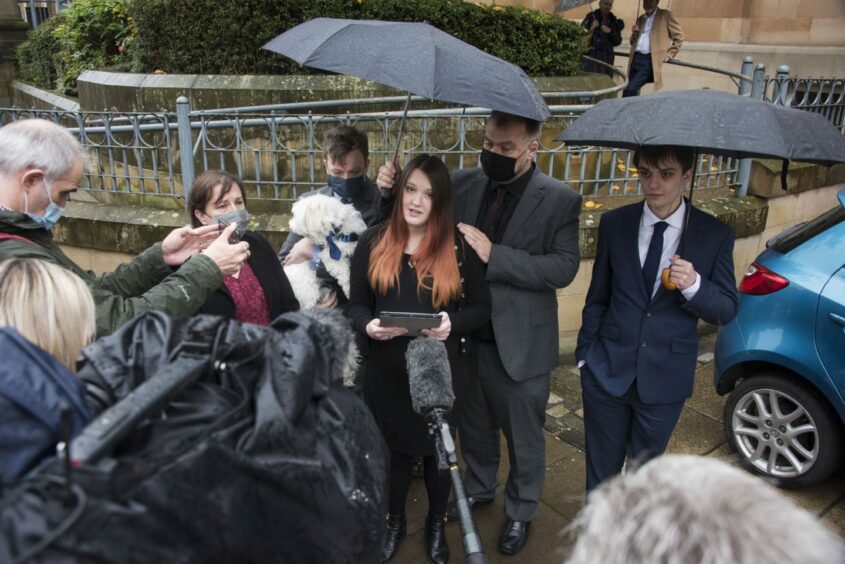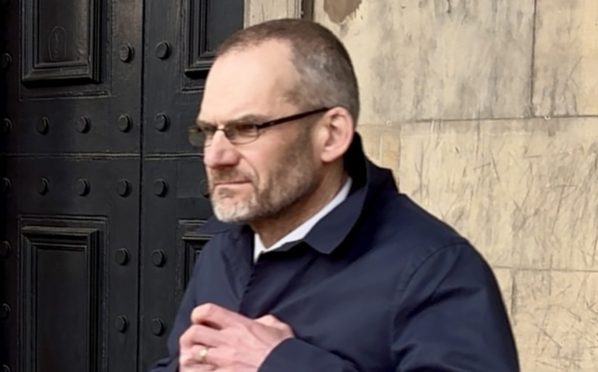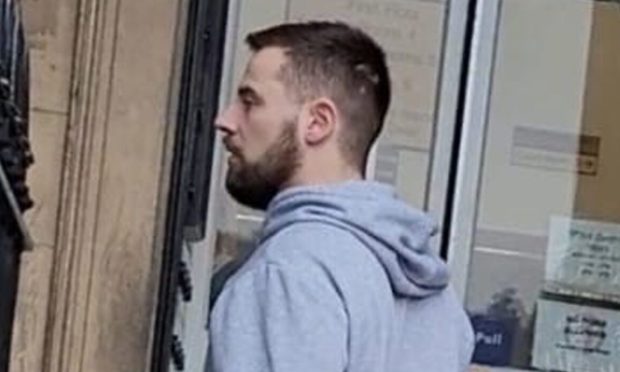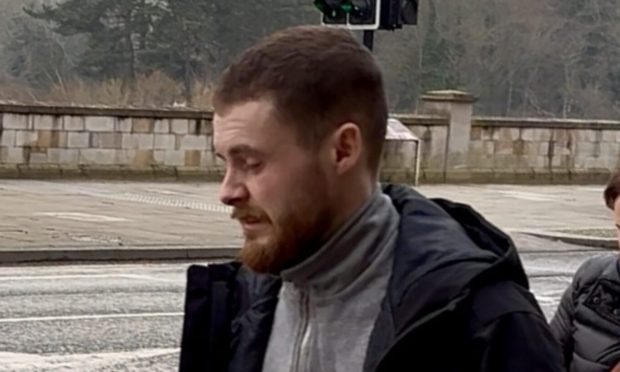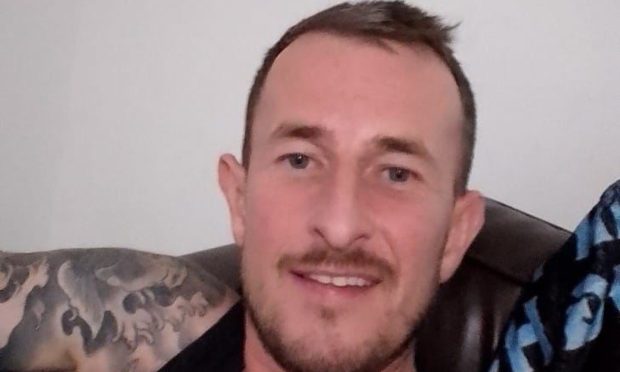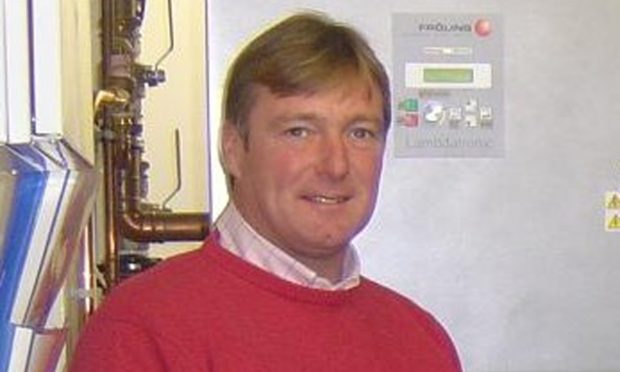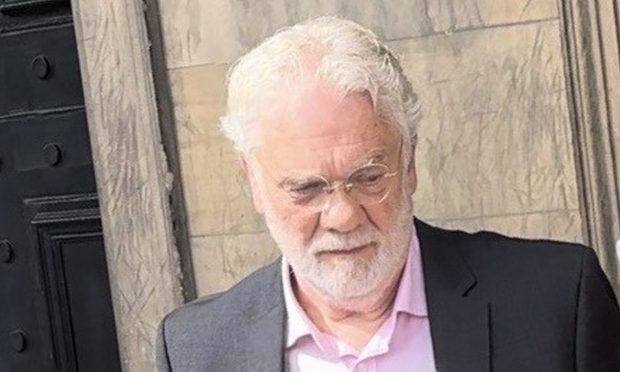Concerns were raised about a carbon monoxide alert at a remote Angus holiday cottage just days before the tragic death of teenage student Thomas Hill, an inquiry has heard.
The operator of Glenmark Cottage in rural Tarfside was warned about an alarm sounding at the property by previous guests.
One of the visitors said she became physically unwell while staying at the house.
Retired private school teacher Piers Le Cheminant, who rented out the holiday home on behalf of Burghill Farms, was told about the alarm on October 17, 2015.
Eleven days later, Mr Hill, 18, died after collapsing at the cottage from carbon monoxide poisoning.
Warned about CO monitor
Le Cheminant, 77, and Burghill Farms – a partnership trading as Dalhousie Estates – admitted exposing holiday makers to risk of death at a hearing in Dundee Sheriff Court in 2021.
During the criminal prosecution, it emerged heaters were being used in rooms which were too small and not ventilated enough.
An investigation found there had been cracks in a bathroom heater which was found to be producing carbon monoxide at dangerous levels.
Burghill Farms was fined £120,000 and Le Cheminant fined £2,000.
The cottage was owned by the Earl of Dalhousie and his heir Lord Ramsay.
Now a fatal accident inquiry is underway at Forfar Sheriff Court after Lord Advocate Dorothy Bain ruled the circumstances gave rise to “serious public concern”.
Speaking at the inquiry, Le Cheminant said he had received an email from regular visitor Nick Hancock that mentioned the carbon monoxide alarm.
It read: “The Superser (heater) in the bathroom was not burning properly and making a noise, and the CO detector went off whilst we were using it.”
Mr Hancock added: “The gas in it is really low so that might be why.”
Le Cheminant said he was not aware that Mrs Hancock’s wife had also displayed “physical symptoms” during her stay.
He said he contacted maintenance man Scott Murray, who did regular jobs at the cottage.
“I spoke to Scott on the telephone and asked him to check the bathroom heater,” Le Cheminant said.
“If anyone had made a comment about anything on the house I would ask what I considered an appropriate person to go and deal with it.”
He said: “Afterwards, I spoke to Scott on the telephone and he told me he had replaced the cylinder (of the heater) and as far as he could see it was functioning properly.”
Asked by fiscal depute Gavin Callahan if he told Mr Murray the alarm had gone off, Le Cheminant said: “I don’t think so.”
Le Cheminant said he was not aware that Mr Murray did not have the proper qualifications to work on the heaters.
Mr Callahan asked: “Had you known that, would you have asked him to check it?”
“Well, no,” said Le Cheminant. “If I had known that obviously he would not have been dealing with any of them.”
Asked by Sheriff Paul Reid if he assumed that Mr Murray had the right qualifications, Le Cheminant said: “Yes.”
Unaware of safety concerns
He told the inquiry that he was not aware of any restrictions on where heaters could be placed, and was “absolutely not” aware of safety issues relating to heaters in bathrooms.
“I don’t know what we would have done if we had been told about this,” he said. “Because there really is no way of heating the property without spending lots of money.”
Mr Callahan asked: “Did you, as the person letting out the cottage to holidaymakers, provide guests with any guidance of what to do if a carbon monoxide alarm went off?”
“No,” Le Cheminant replied. “The trouble was at that time it wasn’t really general knowledge.
“It wasn’t a legal requirement. I was rather proud of the fact we had fitted one when we didn’t have to.”
Alarm had sounded before
During his evidence, Le Cheminant said that the carbon monoxide alarm had sounded before.
“One occasion when I was up there, it went off for no apparent reason,” he said. “I’m guessing that this would have been during the course of the previous season, or maybe earlier.
“I checked that there wasn’t anything in the way of a smell that I could notice.
“There was nothing that I could see that would have (set it off) at all.”
Mr Callahan asked: “Given the remoteness and the lack of communications, did you ever consider what any holidaymaker should do if carbon monoxide alarm went off?”
Le Cheminant replied: “No, not really.
“Anyone going up there would have been aware it was more remote than pretty much anywhere else.
“I had been going up there every year since 1973.
“One simply accepted that this was a remote place with no communications and that was made quite clear to anyone who was renting the place.”
Mr Murray had earlier told the inquiry that – despite what Le Cheminant claimed – he was not tasked with checking the heaters before the start of each season.
‘Trying to divert the blame’
Mr Hill had been staying with his girlfriend and her family at the cottage in October 2015.
He took a bath in the bathroom with the faulty gas heater.
The family became concerned when he failed to emerge from the room after an hour.
When he didn’t respond when they knocked on the door, they forced entry and found him collapsed on the floor. He died en route to hospital.
A post-mortem later ruled that the cause of death was carbon monoxide poisoning.
Speaking after the court case – held on the sixth anniversary of the teenager’s death – father Jerry said: “Tom was a really special young man and it seems to us what killed him was a series of failures really.
“I don’t think anyone comes out of this process with great credit.
“It just seems that everyone tries to divert the blame.”
The hearing before Sheriff Reid is expected to conclude later this month.
For the latest court cases across Tayside and Fife, join our Courts Facebook page.
